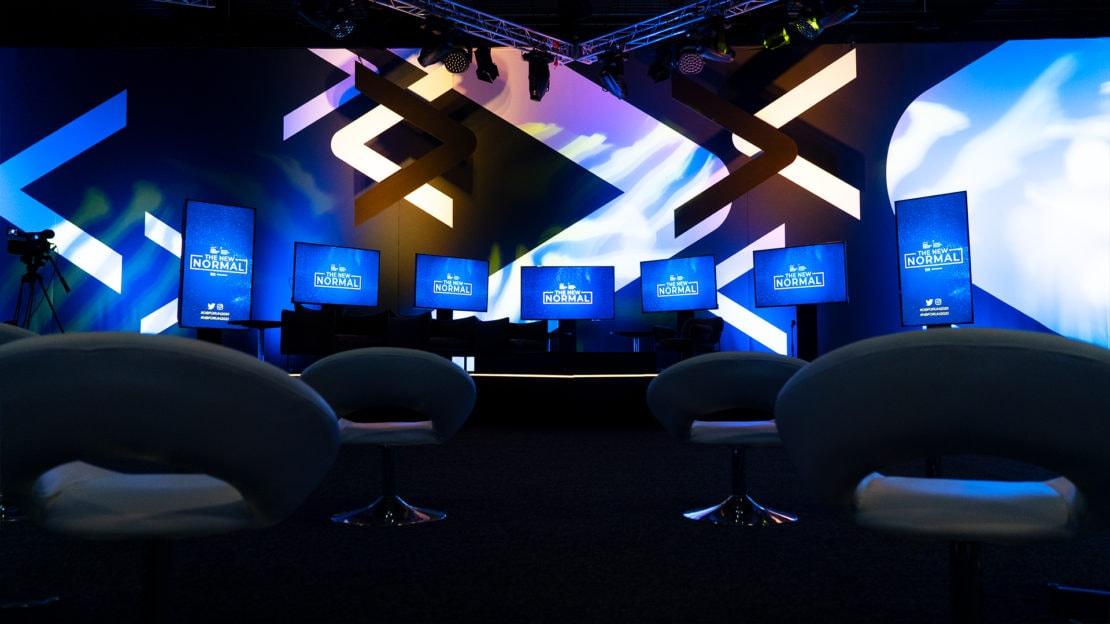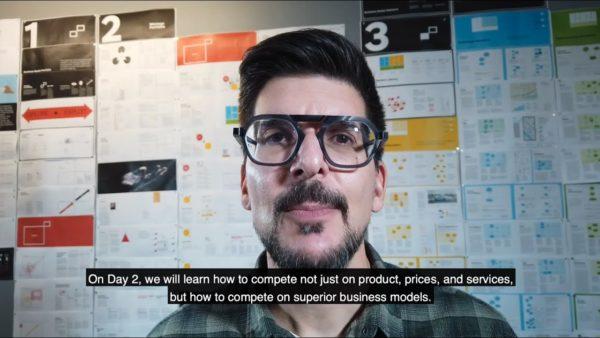25Sep2020
On 24 September, we and the team at Oslo Business Forum organized our second online event focusing on the topic of the new normal in business. We had the honor to learn from four top business experts: Carla Harris, Brian Halligan, Randi Zuckerberg, and Morten Hansen.
We also hosted some great panel discussions before, in between, and after the keynotes. Our goal was to find ideas and insights related to three key issues: 1) what are the lasting changes going out of this crisis, 2) what are the skills that leaders need, and 3) how can leaders focus on long-term results while dealing with a short-term crisis.
The day was full of answers to these questions, and here we provide a few of them.
What are the lasting changes going out of this crisis?
“The new normal in steady-state will look more like today than like 2019,” said Brian Halligan, the co-founder and CEO of Hubspot. So, we should get accustomed to the idea that in general, many practices and behaviors are likely to stick.
One of the most discussed changes is remote work, and whether it is going to be a standard in the new normal. For some companies, it has already become that, while in many countries some SMEs have at least partly returned to the office. Morten Hansen, the Norwegian professor and author, highlighted that in the future he would propose working with a hybrid model – working from both home and the office. He highlighted that for individual and managerial work, home office can work really well, whereas for collaborative work, it is often more efficient to get together at the office.
Due to the increasing amount of remote work, many companies are now recruiting employees not only from the city where they have offices but actually from other cities and/or even other countries. This makes the competition for great employees “to go through the roof”, as Halligan said. This rising competition for skilled employees forces organizations to put even more emphasis on employee experience and strong company culture. “You’re going to have to make your value proposition to your employees much stronger to attract them and to attain them”, Halligan emphasized.
In addition to employee experience, Halligan underlined the growing importance of customer experience now and in the post-COVID environment. He claims that delightful and superior customer experience can be “a great way to gain competitive advantage and to grow”.
What are the skills that leaders need in order to guide their business through and beyond this shift?
It goes without saying that the past 6 months have been difficult not only for employees but also for leaders around the world. This unprecedented situation can cause fear and anxiety for everyone regardless of the position or status at work. Thus, it is good to remember that “it is ok, not to be ok”, as Richard Quest, a journalist and a CNN international anchor pointed out. Leaders too are allowed to feel overwhelmed, and being open about your feelings might even bring you closer to your team.
Related to that, Carla Harris, the Managing Director at Morgan Stanley, pointed out that in the environment we live in today, leaders need to put even more emphasis on doing three things: 1) being visible, 2) being transparent, and 3) being empathetic. In a crisis situation, those three things are the key to keeping your team together and your business going forward.
We also heard encouraging and inspiring words from Randi Zuckerberg, the founder and CEO of Zuckerberg Media, who highlighted that leaders need to embrace getting uncomfortable. “It is a necessary life skill if you’re going to be innovating a business, pivoting and changing during these times”, she said.
How to focus on long-term results while dealing with a short-term crisis?
To start with, Halligan well pointed out that “I don’t think you want to survive in the new normal, but you want to thrive in the new normal”. This perspective came up in the studio discussions as well: the last six months for many have been about surviving, but now it’s the time to look further and figure out how to thrive.
What came up in the studio discussions as well was that many organizations have had to make difficult decisions in terms of, for example, furloughs and lay-offs. However, many companies have also been forced to take large leaps that they never thought they would be able to take.
So, the fact that this crisis can also be an opportunity was a clear message for all leaders. Zuckerberg mentioned that we humans in general are very change-resistant, afraid of failing, and afraid of getting uncomfortable. But the thing is that we are in the middle of a global pandemic, so we are already uncomfortable. “If you’re going to have a moment to take a risk, to make a big bold play – do it now”, Zuckerberg encouraged.
During the upcoming weeks, we will be publishing an executive summary – an ebook diving deeper into each keynote. So, stay tuned!
If you joined us for the event, you can go back to the program until 23 October on the Brella online event platform. The keynotes will also be available on our live.nbforum.com platform for registered users.

 by:
by: 
